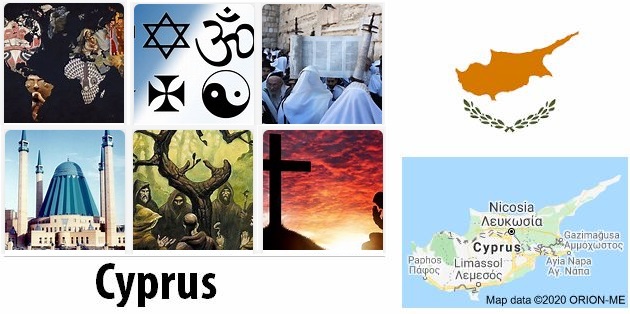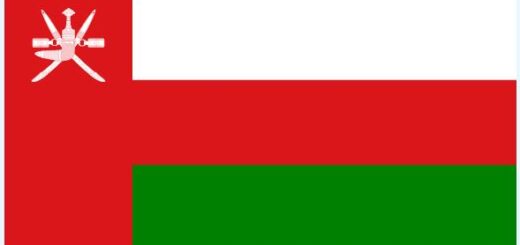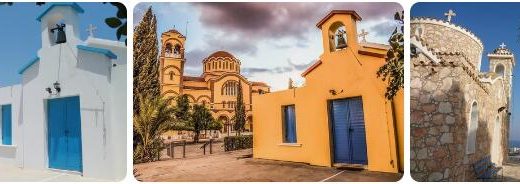Cyprus Religion
About three quarters of the population, that is a large majority of Greek Cypriots, belongs to the Greek Orthodox Church of Cyprus. The Turkish Cypriots are, with few exceptions, Sunni Muslims. Both groups are now relatively secularised.
The Greek Orthodox Church is one of the richest institutions in southern Cyprus, but its political influence has greatly diminished. In northern Cyprus, churches have been converted into mosques since the island was divided in 1974, and some of the churches’ art treasures have been scattered.
Cyprus also has Christian minorities, the most important of which are Armenians and Maronites. When the country gained independence in 1960, the Armenians and Maronites chose to be considered Greek Cypriots in political contexts. They thus ended up with other Greek Cypriots on the southern part of the island after the 1974 divide.
In addition to the Armenian Orthodox Christians and Maronites, there are small groups of Anglicans, Catholics and Jews.
The celebration of religious feasts and festivities is important for both Greek and Turkish Cypriots, not least to strengthen one’s own ethnic identity.
- Countryaah: Population statistics for 2020 and next 30 years in Cyprus, covering demographics, population graphs, and official data for growth rates, population density, and death rates.
2018
November
New border crossings are opened
November 12
For the first time in eight years, two new border crossings will be opened between the Greek Cypriot and the Turkish Cypriot parts of Cyprus. It is also the first opening since the UN-backed talks collapsed in 2017. The initiative raises hopes that new peace negotiations will start between the parties.
September
Agreement on future gas pipeline
September 19
Cyprus and Egypt conclude an agreement to draw a pipeline at sea for the transport of gas from the Aphrodite field in the Mediterranean. The recovery has not started from the gas field, which, in addition to Cyprus, also Israel and several international energy companies have shares in. In the extension, further exports to Europe are seen.
March
The abortion law is alleviated
March 30
The Greek Cypriot Parliament decriminalizes abortion during the first twelve weeks of pregnancy. In cases where the woman becomes pregnant through rape or incest, a limit of 19 weeks applies. Previously, abortion was only allowed if two independent doctors were able to establish that a woman could suffer physical or mental harm from pregnancy.
February
President Anastasiadi’s reelection
February 4th
President Anastasiadis remains for a second five-year term after winning the second round of the presidential election with 56 percent of the vote against 44 percent for challenger Stavros Malas, who is independent but has the support of Communist Akel. The turnout is 73 percent. Anastasiadis won the election with promises of continued economic upturn for Cyprus and a fresh start of the conversation with Northern Cyprus on the island’s reunification.
January
Second rounds are required in presidential elections in the south
January 28
When presidential elections are held in southern Cyprus, no candidate will succeed in getting the 50 percent of the votes required for victory in the first round of elections. Instead, President Anastasiadis, who gets the most votes (35.5 percent), will meet in a second and decisive round on February 4, the candidate who gets the second most votes: Stavros Malas, supported by Akel and gets 30.2 percent of the vote. Nikolas Papadopoulos gets 25.7 percent of the vote while Christos Christou gets 5.7 percent.
Migration problems in focus for southern Europe
January 10
Leaders of seven EU countries in southern Europe (Greece, Cyprus, Malta, Italy, France, Spain and Portugal) gather for a summit in Rome. In a joint statement, they express their support for the EU’s common migration policy. They agree that the EU needs to strengthen the guarding of the Union’s external border, fight human smuggling and do more to address problems in migrant homelands. They call on all EU members to provide more assistance to the countries receiving the most asylum seekers / migrants.
Conservative UBP wins new elections in Northern Cyprus
7 th of January
Tensions within the governmental coalition in Northern Cyprus lead to new elections. In it, the Conservative National Unity Party (UBP) will be the largest with 36 percent of the vote, giving 21 of the 50 seats. This means that UBP cannot govern on its own, but must form a new coalition government. Probable alliance parties are the Nationalist Democratic Party (DP) and the Rebirth Party (YDP), which receive 8 percent (3 seats) and 7 percent (2 seats) respectively. Together, the three right-wing parties have the 26 mandates required to form a majority government. The Socialist Republican Turkish Party (CTP) declines sharply to 21 percent, giving 12 seats. The People’s Party (HP), a newly formed party that is skeptical of negotiations for a reunification of Cyprus, gets 17 percent (9 seats). The remaining 9 percent of the vote (3 seats) goes to President Akıncı Municipal Democratic Party. The turnout is 66 percent.




